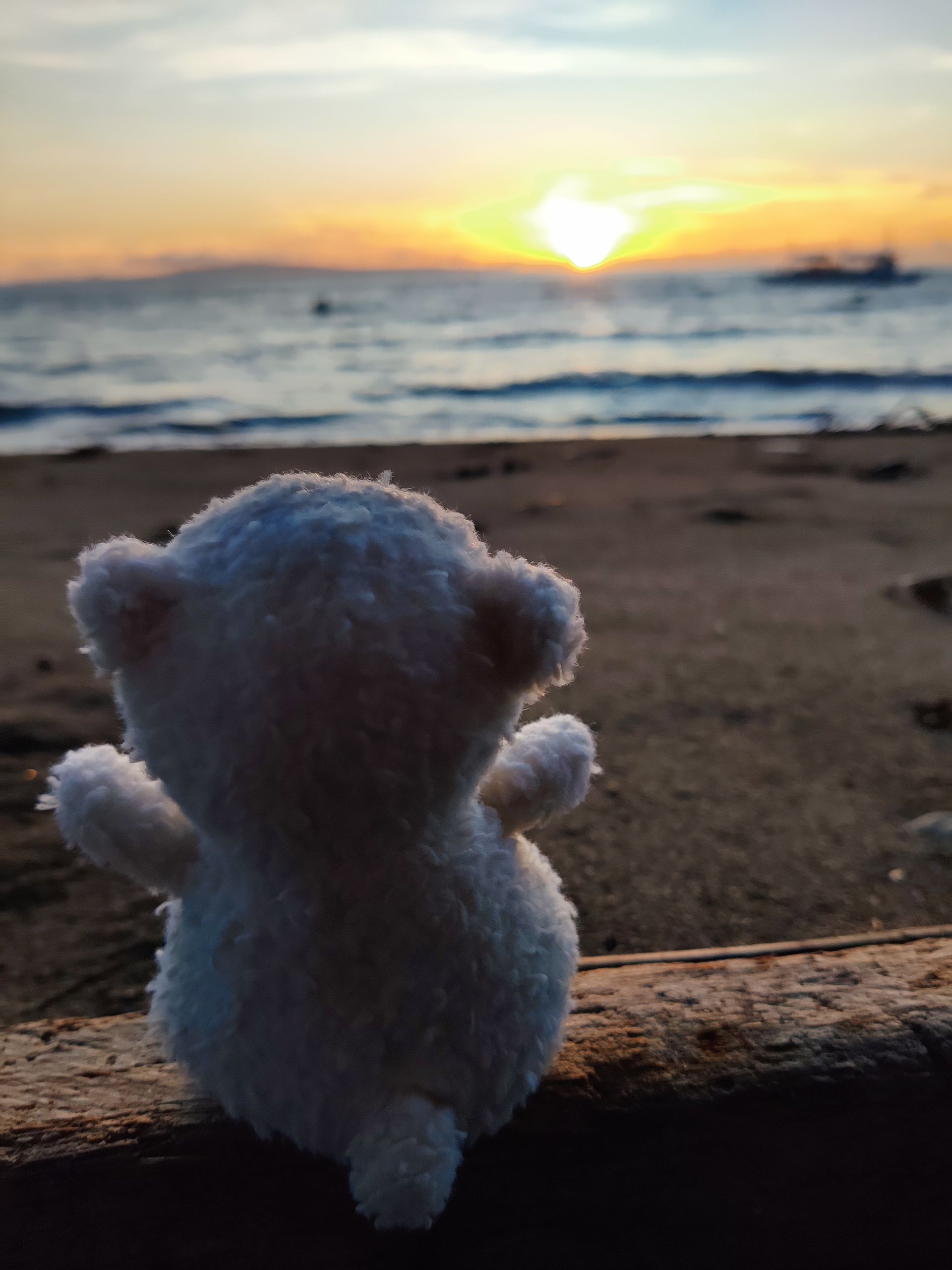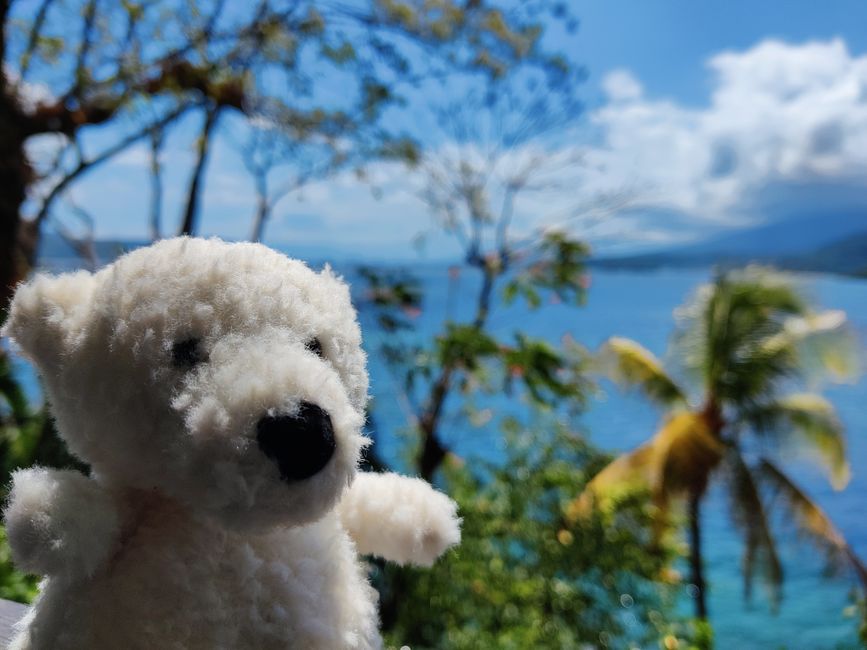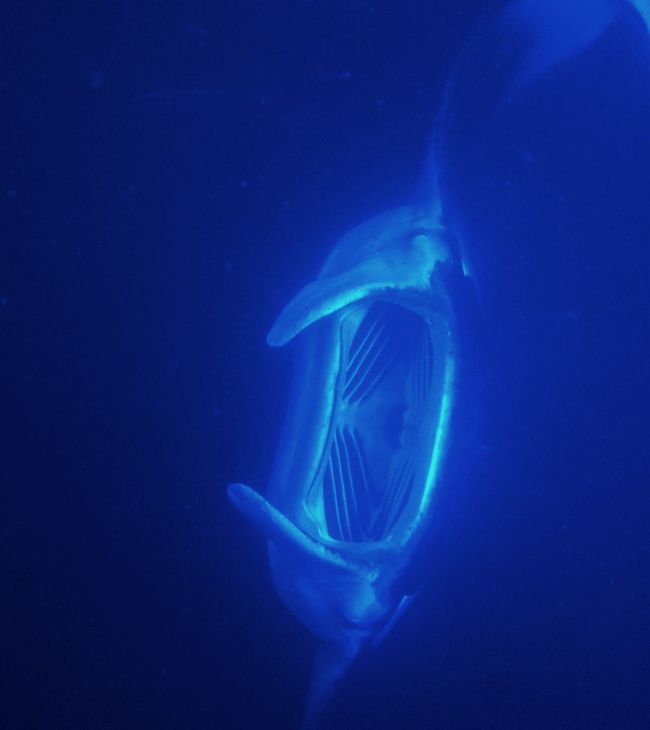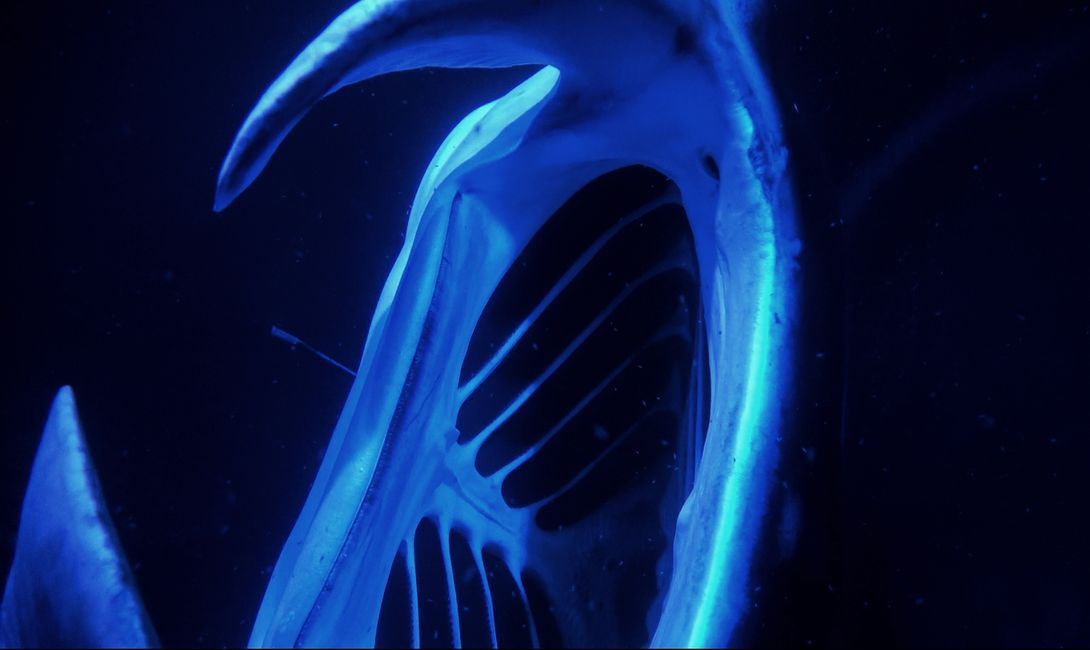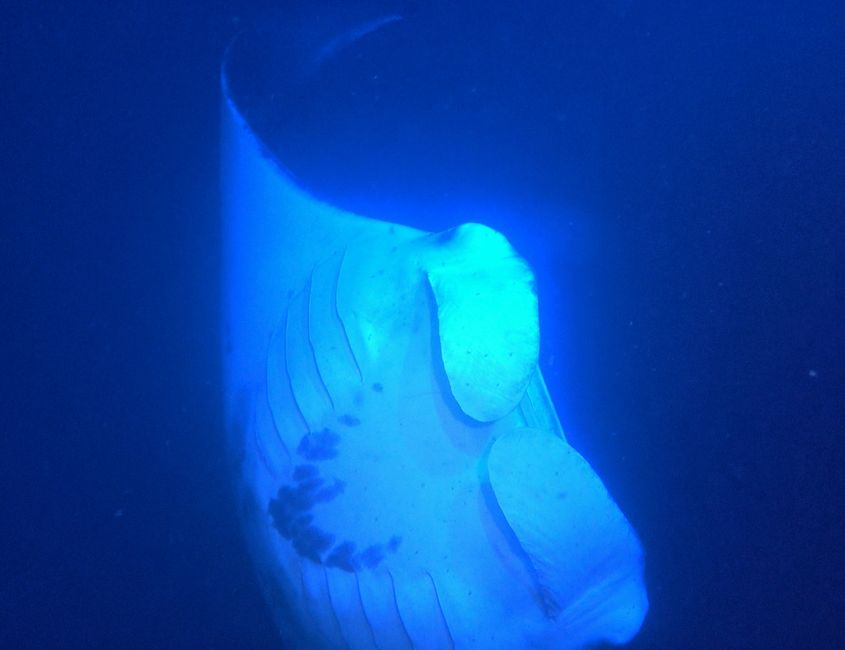Manta rays at night
प्रकाशित कीता: 04.02.2024
न्यूज़लेटर दी सब्सक्राइब करो
After three (3) canceled diving or snorkeling sessions due to bad weather conditions, the fourth attempt was successful. Before that, the waves and the sea were too rough.
We chose the later time slot, 20:30, out of two possible times (18:30 and 20:30) because we read in previous reports that there are less boats present at that time.
And indeed, from 8:00 pm onwards, many boats are already leaving the water. The people who have been there are either ecstatic or speechless about what they have just experienced. And in fact, there were many mantas present and hungry on the first tour.
As divers, we intentionally chose snorkeling this time, specifically at the Outrigger location out of the two possible diving spots (Garden Eel Cove north or south of Kona, in front of the Outrigger Hotel).
The boat ride is only 5 minutes. There are two boats with about 12-16 participants each on the way. The mantas can already be seen shortly before entering the water. Prepared are modified surfboards with downward-facing lights and a handle that goes all around, so that 5-6 snorkelers can fit on each side.
So, jump into the water and hang on to the structure. The whole process takes 1-2 minutes, no big deal.
The light of my camera shines downwards, and there is a lot of plankton visible in the water. And that is exactly what attracts the mantas. The light attracts the plankton, and the plankton attracts the mantas.
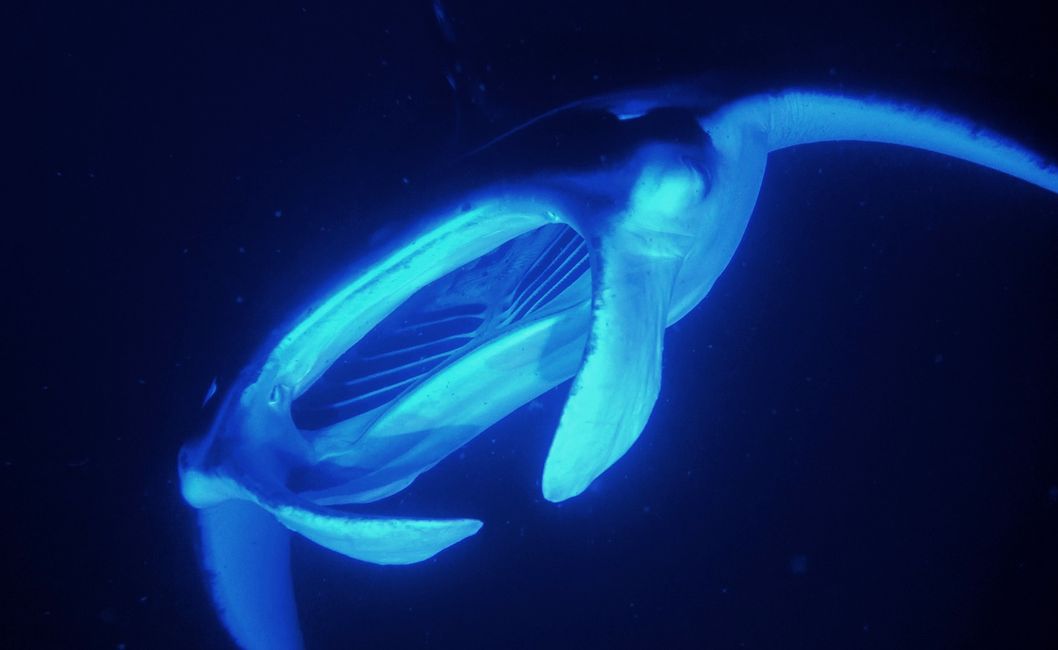
And it's not just one, not just two, it's at least seven (7)!! or even more.
They circle around with their mouths wide open, filtering the plankton. In doing so, they not only come close to the snorkelers and the boards, but they even touch them very often. For those who experience mantas so close for the first time, it's an incredible experience.
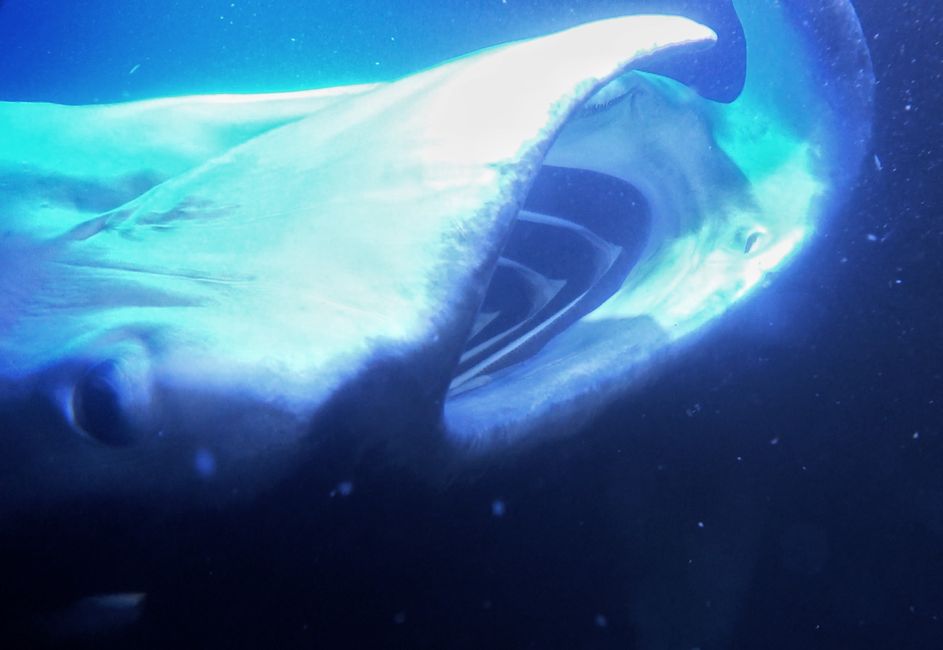
You can see every detail, and the light shining into their wide-open mouths provides deep insights.
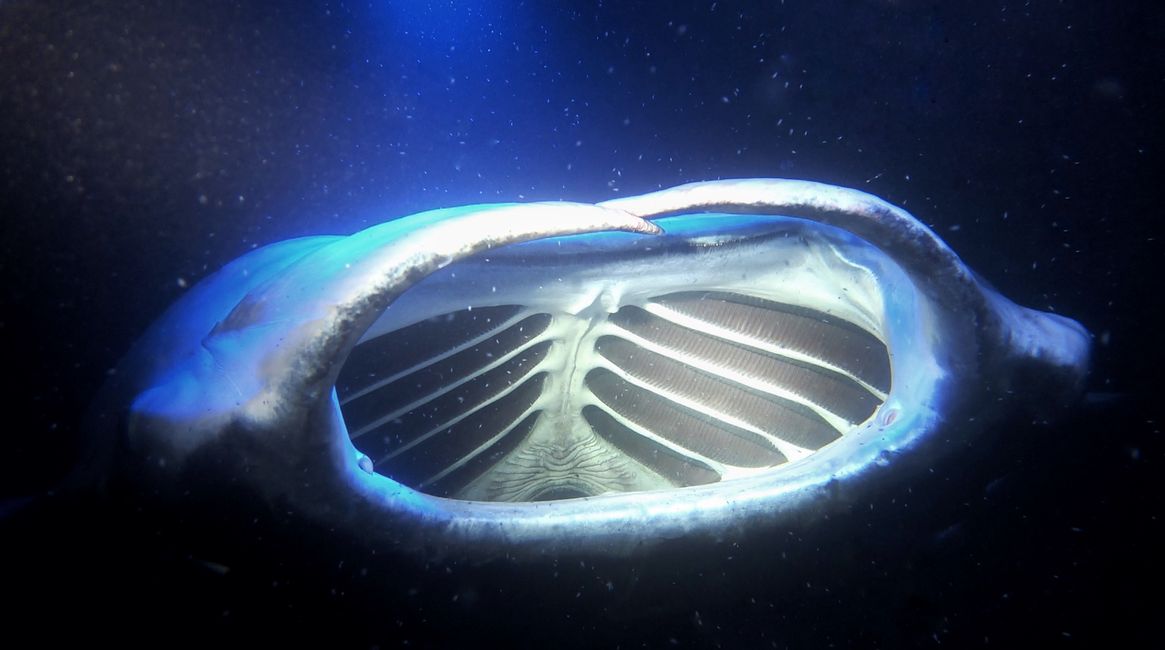
The mantas, who usually appear so leisurely, relaxed, and elegant at cleaning stations and let themselves be observed during wellness sessions, are now rather wild and in a battle for the plankton. The image comes to mind of someone throwing two schnitzels into a pack of wolves, and they are now fighting over them.
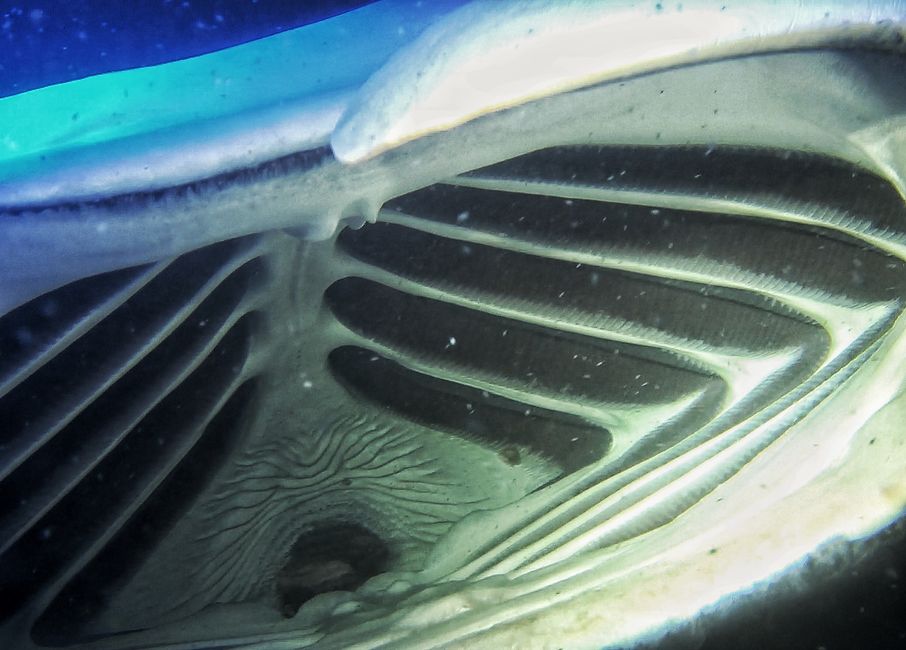
The spectacle is only interrupted for a few minutes when the mantas are "grazing" at the other surfboard.
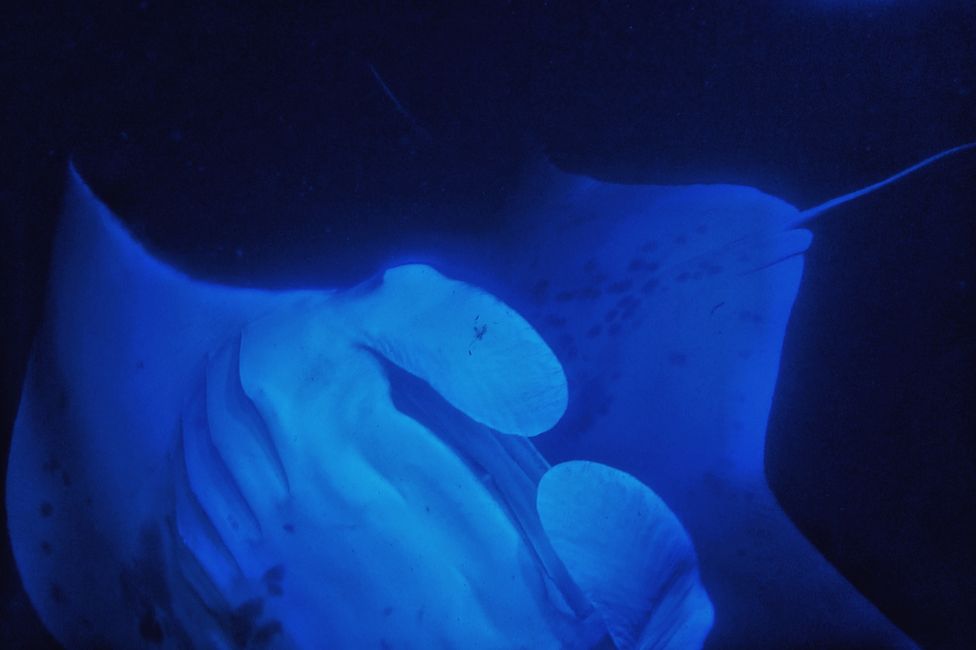
The mantas continue to circle wildly, but they usually manage to avoid collisions by turning away beforehand and swimming past each other just millimeters apart.
Unfortunately, contact with the snorkelers (some of whom probably can't swim very well) cannot be avoided. You can see injuries on many mantas, possibly from a propeller.
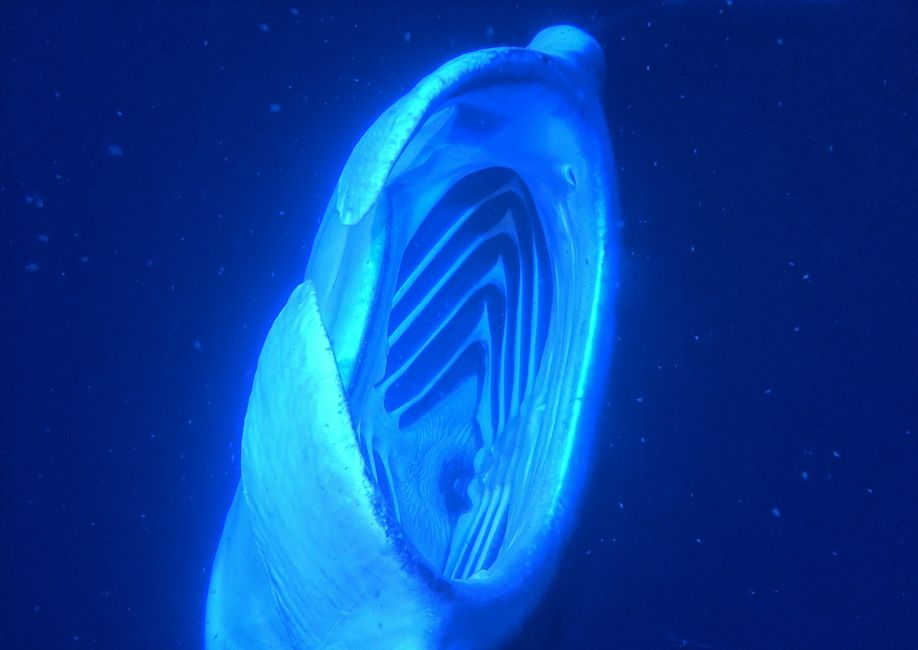
After 40 minutes, we go back on board. Definitely a unique experience, but it also makes me think a little when such elegant creatures become such an easy tourist attraction.
Although I don't have a direct comparison at night, I believe that through snorkeling, I got much closer to the mantas and saw more.
A highlight for visitors on Big Island, although I wish that the participants would be given a closer understanding of the mantas' lives in advance, so that they can better understand the animals.
Otherwise, they might end up like visitors from faraway countries at Oktoberfest in Munich, who might think that all of Germany consists of beer tents and dirndls.
Aloha
न्यूज़लेटर दी सब्सक्राइब करो
परता
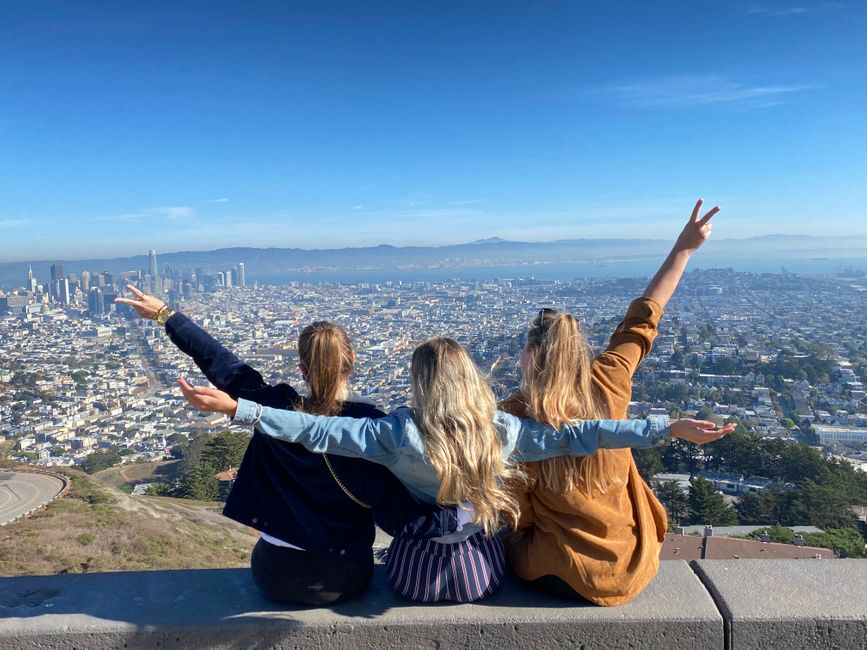
यात्रा दी रिपोर्ट यूएसए ऐ।
